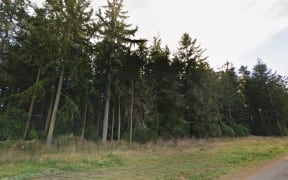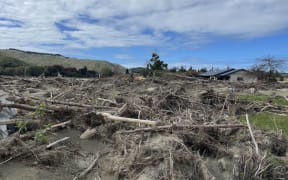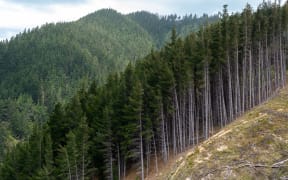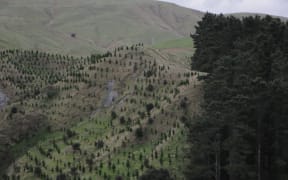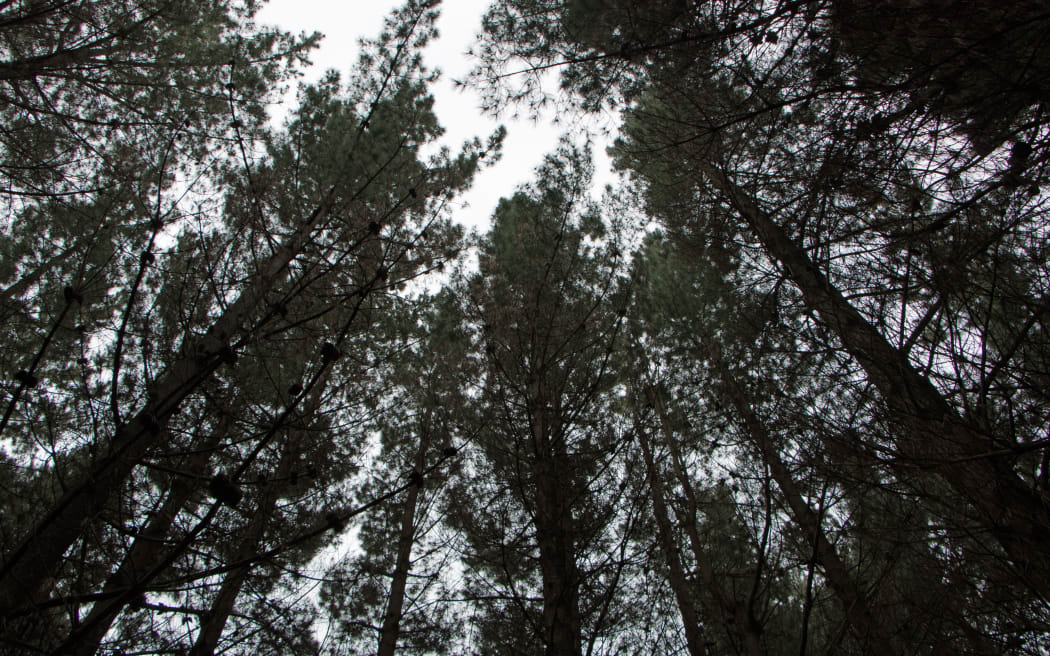
The rules for overseas investments in forestry changed last year, making it harder for foreign investors to purchase New Zealand farmland for conversion. Photo: RNZ / Kate Newton
Four farms covering more than 2,000 hectares have been sold to overseas investors for conversion to rotational forestry.
The sales were approved under the Overseas Investment Office Special Forestry Test.
A 632 hectare beef farm in Whangārei has been sold to Swiss company Kauri Forestry - it plans to convert 420 hectares of the farm into a commercial plantation forest.
The remaining land will be made up of approximately 152 hectares of native bush and scrub and 60 hectares of unplantable land, infrastructure and buffer land which will include riparian and boundary setbacks.
A Dutch company has bought a 186 hectare block of land in Clutha, Otago which is currently a mixture of farm land and forestry.
It intends to maintain the existing forestry activity and convert the remaining land to trees.
A large sheep and beef farm in Waimate has been sold to US company Port Blakely Limited - 312 hectares farm will be planted into rotational forestry by the end of next winter.
The land adjoins 1785 hectares of the company's existing forest known as Waimate Forest.
And furniture company IKEAs parent company Ingka Investments has purchased another farm.
The majority of the 954 hectare sheep, beef and deer farm in Gisborne will be planted into trees in the next two years - with harvest taking place in about 30 years.
Last year the rules for overseas investments in forestry changed, making it harder for foreign investors to purchase New Zealand farmland for conversion because they must now meet the stricter benefit to New Zealand test.
And last month forestry Peeni Henare announced the government was set to tighten up rules on farm-to-forestry conversions by giving communities greater control over the planting of forests.
Amendments to the National Environmental Standards for Plantation Forestry will require land owners to adhere to new standards such as ensuring firebreaks are in place, and new rules about planting next to rivers, lakes and wetlands will now be required for any new forestry conversions.
"These changes are about getting the right tree in the right place, by seeing fewer pine forests planted on farmland and more on less productive land," Henare said.
"We are empowering local councils to decide which land can be used for plantation and carbon forests through the resource consent process."
